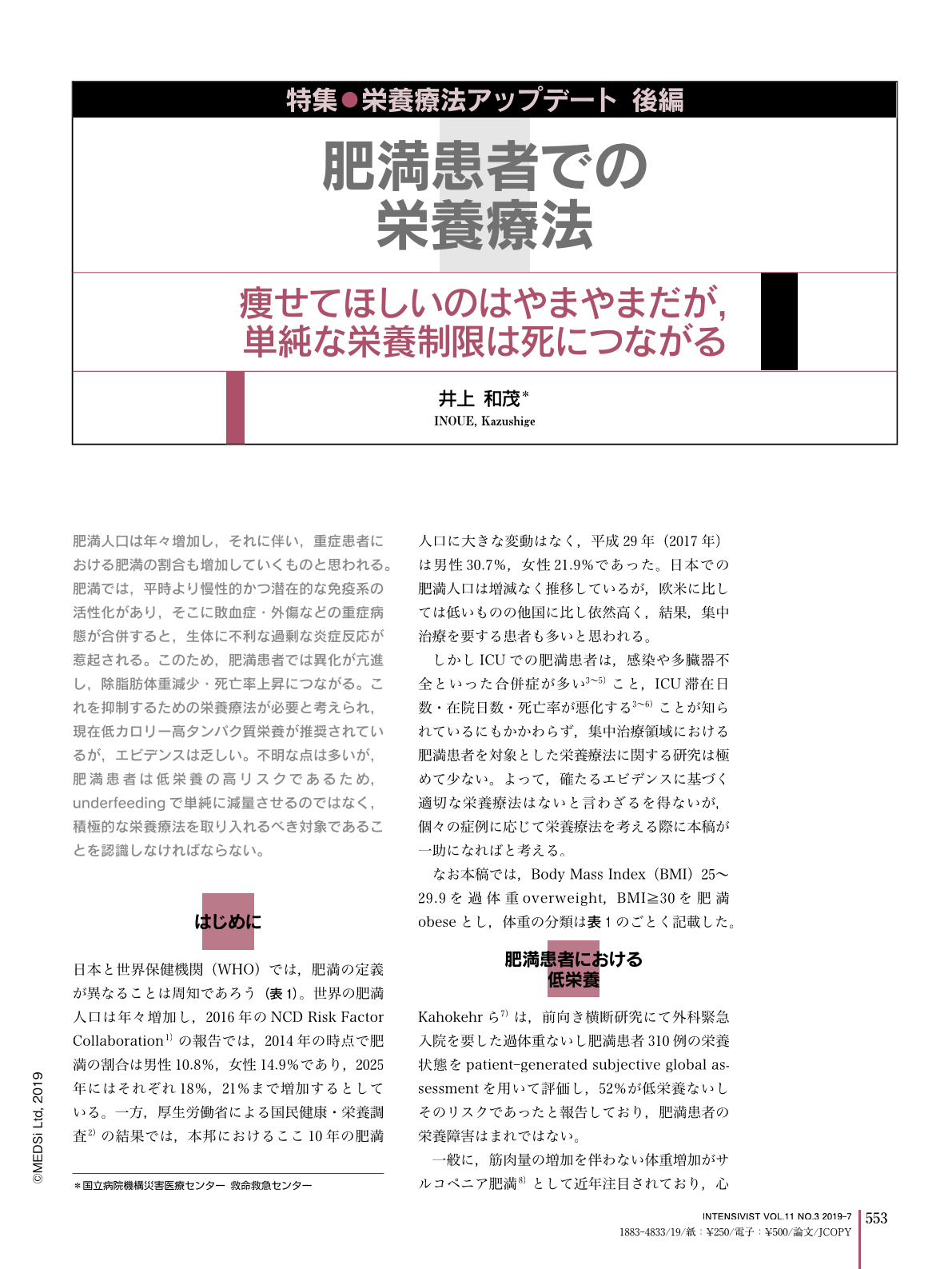Japanese
English
- 有料閲覧
- Abstract 文献概要
- 1ページ目 Look Inside
- 参考文献 Reference
肥満人口は年々増加し,それに伴い,重症患者における肥満の割合も増加していくものと思われる。肥満では,平時より慢性的かつ潜在的な免疫系の活性化があり,そこに敗血症・外傷などの重症病態が合併すると,生体に不利な過剰な炎症反応が惹起される。このため,肥満患者では異化が亢進し,除脂肪体重減少・死亡率上昇につながる。これを抑制するための栄養療法が必要と考えられ,現在低カロリー高タンパク質栄養が推奨されているが,エビデンスは乏しい。不明な点は多いが,肥満患者は低栄養の高リスクであるため,underfeedingで単純に減量させるのではなく,積極的な栄養療法を取り入れるべき対象であることを認識しなければならない。
Obesity is increasing in incidence, and can result in a situation similar to that in critically ill patients. Obesity-associated inflammation occurs usually as a chronic and latent low-grade systemic inflammatory response. With underlying systemic inflammation, obese patients exposed to a secondary illness or injury may develop an exaggerated inflammatory response. These patients are then in a hypercatabolic state, leading to decreased lean body mass and increased mortality. Therefore, nutritional therapy is important to suppress catabolism. Currently, hypocaloric high-protein feeding is recommended in every guideline, however, the supporting evidence is poor. Although the optimal nutritional therapy is still unclear, this paper stresses that obese patients are at an increased risk of developing malnutrition, and aggressive nutritional therapy should be given.

Copyright © 2019, MEDICAL SCIENCES INTERNATIONAL, LTD. All rights reserved.


